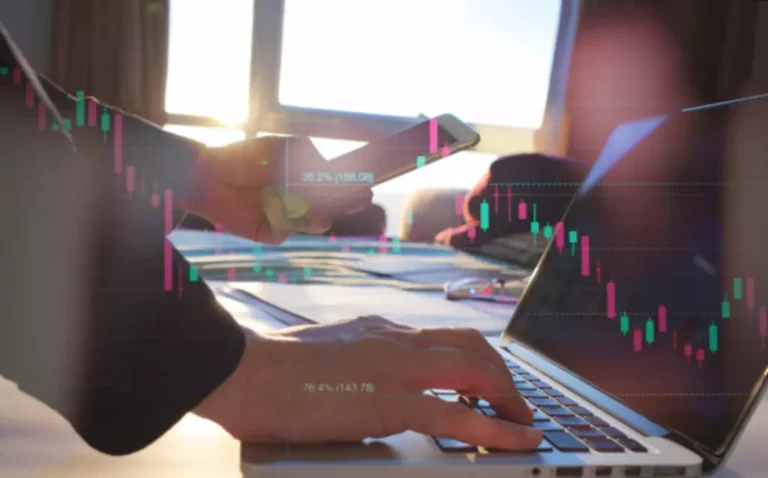Retail Vs Institutional Trading: Key Variations Explained
Retail traders, also known as particular person traders, trade securities for his or her personal accounts. They typically spend cash on commonplace monetary instruments like shares, bonds, and mutual funds. Whereas retail merchants can commerce any number of shares, they often deal in spherical lots of 100 shares. In addition to trading platforms, retail merchants also can profit from a big selection of educational assets and courses.

What’s Retail Trading?
This will increase the purchasing energy of institutions that may have already got access to a large amount of capital. Buying And Selling in monetary markets-including equities, options, futures, and forex-involves vital danger of loss and is not suitable for all traders. The use of leverage, as is common in funded buying and selling applications, can amplify both features and losses and may lead to losses exceeding your preliminary capital allocation. Key trends embrace the rise of ESG investing, technological developments, and evolving market dynamics. Retail access to classy instruments might narrow the hole between these two buying and selling styles over time. The regulatory framework round institutional trading is designed to protect traders, guarantee market stability, and promote fairness.
Leverage could enhance potential returns, nevertheless it additionally escalates the publicity to substantial losses. Though retail traders and institutional merchants are completely different breeds of traders, retail merchants typically become institutional merchants. A retail trader might begin to trade for their own personal account, and in the event that they perform properly, they could begin to trade for family and friends. When multiple firms deploy similar trading methods, it might amplify specific market trends, leading to herd behavior and growing systemic danger.
For this cause, they sometimes may cut up trades among varied brokers or over time so as to not make a material impact. The infrastructure prices could go as a lot as hundreds of hundreds of thousands, and that doesn’t even guarantee success. Moreover, some institutional merchants have special agreement with brokerages to behave as specialised market makers. As particular person traders, we can fly beneath the radar and tackle markets that don’t have sufficient liquidity to absorb the massive boys. Furthermore, institutions incessantly employ machine studying methods to boost their algorithms’ adaptability and decision-making capabilities. By using models that can learn and evolve from new information, these traders goal to minimize back the impression of unforeseen information anomalies and market shifts.
Retail traders typically have far less access to information, despite the precise fact that all trades (at least all authorized trades) are primarily based on publicly available information. Establishments typically benefit from non-public data and complex platforms unavailable to retail buyers. You, as a retail dealer, can leverage publicly available data to make well-informed decisions within these constraints. For instance, during times of market volatility, retail merchants may panic and sell off property, creating short-term price swings.
- Reflecting on these cycles helps you refine strategies for getting into or exiting positions extra successfully.
- While retail merchants could get pleasure from flexibility and accessibility, institutional traders have the benefit of capital, know-how, and skilled expertise.
- In conclusion, whereas retail merchants and institutional traders have different advantages and limitations, both play necessary roles within the financial markets.
- As we now have already talked about, institutional traders purchase or sell about 10,000 shares and typically even more.
- For instance, reinforcement studying models allow trading systems to make decisions based mostly on potential rewards, optimizing their methods for better performance.
The significance of algorithmic trading is underscored by its capacity to course of huge data units and operate throughout multiple markets concurrently, which is crucial for maintaining competitive edges. Do you need to discover the monetary markets in India as a retail or an individual investor? However, as a novice dealer, you’re unaware of the opposite individuals in the inventory markets and are curious to find out about it, then, you might have landed on the proper page. It holds true that retail traders can open or close their positions at will with little to no impression on liquidity. This lifts lots of weight off a traders’ shoulders, since they will check out concepts with out having to fret about with the power to shut out their positions. They can also affect the market with their giant orders, although a few of their practices aren’t strictly legal, however are nonetheless pretty common.
Familiarizing yourself with phrases corresponding to bid/ask unfold, stop-loss order, margin, and leverage may help you navigate the market extra successfully. Having a robust grasp of these concepts will allow you to make better-informed selections and reduce potential risks. When partaking in retail trading, it’s essential for traders to grasp and comply with regulatory concerns. These laws are set by financial regulatory our bodies to make sure a fair and transparent buying and selling setting. By adhering to those rules, retail traders can shield themselves and contribute to the general integrity of the market. Before making any buying and selling selections, it’s crucial to conduct thorough analysis on the securities or belongings you are contemplating.
The evolving panorama of the monetary markets has democratized access to trading, empowering particular person retail traders with opportunities as soon as thought to be reserved for institutional players. The retail buying and selling quantity is on a relentless rise, indicating a flourishing interest amongst people in the funding world. With equal parts opportunity and challenge, these changes are a testament to the evolution and resilience of the retail investor. Each retail traders and institutional traders play vital roles in the monetary markets. While institutional traders enjoy significant advantages by way of assets and market access, retail merchants profit from flexibility and independence.
This progress is indicative of the expanding alternatives for particular person retail merchants, who can now entry the identical trades as central banks and on-line financial establishments. Institutional buying and selling involves large-scale transactions by organizations corresponding to banks, hedge funds, or pension funds. These trades, executed in high volumes, leverage economies of scale, superior tools, and in-depth analysis to impression market pricing and liquidity. newlineRetail trading refers to the practice of particular person buyers shopping for and promoting financial instruments, such as shares or bonds, by way of personal accounts rather than large-scale institutional portfolios. This form of buying and selling often provides greater accessibility to financial markets for everyday individuals. When evaluating the panorama of financial buying and selling, it’s evident that institutional merchants function with distinct advantages.

Still, it additionally comes with extra regulation, as we noticed above, the need to meet investors’ expectations, and the potential for disruption to your portfolio. Institutional merchants, and even hedge funds, are nonetheless extra regulated than retail merchants. This makes excellent sense once we assume through why various financial laws exist. The ability to put cash into smaller, less liquid markets isn’t the only benefit of working with smaller capital quantities.

Combine that with some highly-functional order move indicators and instruments, and also you havethe workings of a potentially profitable trading strategy. TradeFundrr enforces strict threat administration parameters, including day by day loss limits, maximum place sizes, and mandatory stop-loss necessities. Violation of these parameters might lead to suspension or termination of funded buying and selling privileges. Customers are encouraged to consult with impartial financial, authorized, or tax advisors earlier than making any buying and selling or enterprise choices. Whether Or Not you’re leveraging technology, exploring new developments https://www.xcritical.com/, or specializing in regulatory concerns, staying adaptable is vital. Your capacity to align your buying and selling approach with evolving market conditions will in the end determine your success in achieving your monetary objectives.

Definition And Key Traits
We haven’t any strain to commerce and may wait on the sidelines for good alternatives. In summary, institutional algo buying and selling significantly enhances market liquidity and pricing efficiency but in addition contributes to increased volatility and systemic risk. While these trades supply tangible benefits for various market actors, together with retail merchants, they necessitate ongoing evaluation and regulatory oversight to ensure market integrity and sustainability. Nonetheless, the speedy execution of trades can also induce important market volatility, notably Cryptocurrency when giant trading volumes happen over short periods. This phenomenon can be exacerbated during times of market stress or in much less liquid markets, where the actions of institutional traders could result in fast worth swings.
Institutional traders function on behalf of huge monetary entities similar to hedge funds, funding banks, mutual funds, and pension funds. They trade in large volumes and have entry to superior trading sources and infrastructure. The dynamics between retail and institutional buying and selling can have a profound influence on financial markets, as evidenced by latest events such as the GameStop saga in early 2021. In this instance, a gaggle of retail traders coordinated efforts by way of online platforms to drive up the worth of the GameStop inventory, causing vital losses to institutional short-sellers. Institutional buying and selling strategies are usually more numerous and sophisticated than these employed by retail merchants.
Retail participants may also be extra susceptible to adverse effects in periods of heightened volatility induced by algorithmic trades. Due to their extensive capital assets, their trades can move markets, affecting volatility and liquidity. For occasion, when a hedge fund makes a significant purchase order, it could possibly lead to an increase in the inventory’s value, whereas a considerable promote order might depress costs. This capacity to influence markets is additional amplified by means of sophisticated algorithms and high-speed trading platforms, which allow speedy execution of trades.

Comentarios recientes